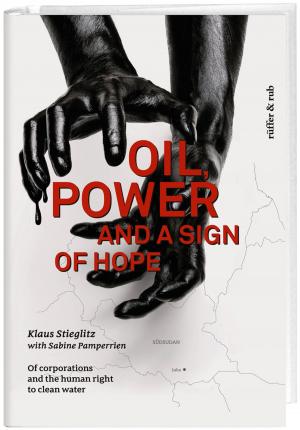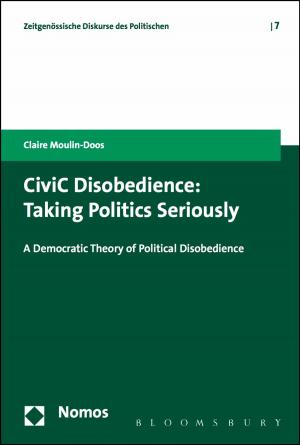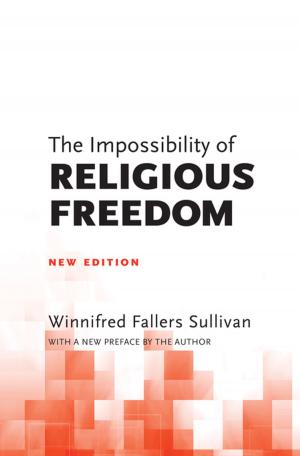| Author: | JP Tate | ISBN: | 9781507029503 |
| Publisher: | JP Tate | Publication: | January 1, 2015 |
| Imprint: | Language: | English |
| Author: | JP Tate |
| ISBN: | 9781507029503 |
| Publisher: | JP Tate |
| Publication: | January 1, 2015 |
| Imprint: | |
| Language: | English |
For those whose mind is closed on the subject of feminism because society has told them what to think and they obediently think it, there are many hundreds of books available that will reinforce their cultural orthodoxy. This book is not for them. It is a polemic which takes a radically anti-establishment position and expresses an alternative point of view. It argues for a genuinely impartial sex equality and attempts to demonstrate that, not only has feminism always been opposed to sex equality, feminism has actually stopped us from achieving an impartial sex equality.
The book’s title means just what it says. Feminism is itself sexism, and not some new kind of ‘reverse’ sexism but the same old sexism that operated in traditional society. Misandry is not a recent development, it has been around for as long as misogyny. Feminism endorses and exploits traditional misandry in its power-politics.
What types of traditional misandry? Most notably, the sexist double-standard about the value of human life, which treats men as the expendable sex and holds women’s lives to be intrinsically more valuable than men’s lives, and the sexist double-standard about human pain, which treats female pain as being more serious and important than male pain.
“Feminism is Sexism” raises many issues which, whether you agree with the arguments or not, are at least worthy of the consideration of those with an open mind. It describes feminism’s perversion of the freedom movement of the 1960s. It offers argument to refute patriarchy theory (in fact, five variations of that theory), on which all feminism is based. It exposes the maxim of Equal But Different for what it is, a hypocrite’s charter. Along the way it asks many uncomfortable questions, such as:
Feminism promotes negative gender-stereotypes of men, locating the litany of men’s deficiencies and vices in their biological maleness. So is feminism guilty of everything it pretends to be against?
If the UK government’s own statistics on domestic violence show that over 40% of the victims are male, why is their new policy on domestic violence called “Ending Violence Against Women and Girls”?
Boys are being raised in a society which tells them that they are going to grow up into a cross between Jackass and Jack the Ripper. What kind of psychological damage will this do to them?
Drawing upon evidence and examples from the UK, the USA, and elsewhere, the arguments in “Feminism is Sexism” may be unsettling, but they are not going to disappear simply because the political establishment chooses to ignore them. This is a provocative book which challenges you to doubt beliefs which you may have held all your life without really questioning them. Question them now.
For those whose mind is closed on the subject of feminism because society has told them what to think and they obediently think it, there are many hundreds of books available that will reinforce their cultural orthodoxy. This book is not for them. It is a polemic which takes a radically anti-establishment position and expresses an alternative point of view. It argues for a genuinely impartial sex equality and attempts to demonstrate that, not only has feminism always been opposed to sex equality, feminism has actually stopped us from achieving an impartial sex equality.
The book’s title means just what it says. Feminism is itself sexism, and not some new kind of ‘reverse’ sexism but the same old sexism that operated in traditional society. Misandry is not a recent development, it has been around for as long as misogyny. Feminism endorses and exploits traditional misandry in its power-politics.
What types of traditional misandry? Most notably, the sexist double-standard about the value of human life, which treats men as the expendable sex and holds women’s lives to be intrinsically more valuable than men’s lives, and the sexist double-standard about human pain, which treats female pain as being more serious and important than male pain.
“Feminism is Sexism” raises many issues which, whether you agree with the arguments or not, are at least worthy of the consideration of those with an open mind. It describes feminism’s perversion of the freedom movement of the 1960s. It offers argument to refute patriarchy theory (in fact, five variations of that theory), on which all feminism is based. It exposes the maxim of Equal But Different for what it is, a hypocrite’s charter. Along the way it asks many uncomfortable questions, such as:
Feminism promotes negative gender-stereotypes of men, locating the litany of men’s deficiencies and vices in their biological maleness. So is feminism guilty of everything it pretends to be against?
If the UK government’s own statistics on domestic violence show that over 40% of the victims are male, why is their new policy on domestic violence called “Ending Violence Against Women and Girls”?
Boys are being raised in a society which tells them that they are going to grow up into a cross between Jackass and Jack the Ripper. What kind of psychological damage will this do to them?
Drawing upon evidence and examples from the UK, the USA, and elsewhere, the arguments in “Feminism is Sexism” may be unsettling, but they are not going to disappear simply because the political establishment chooses to ignore them. This is a provocative book which challenges you to doubt beliefs which you may have held all your life without really questioning them. Question them now.















